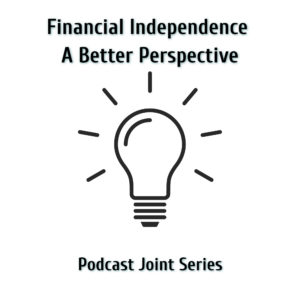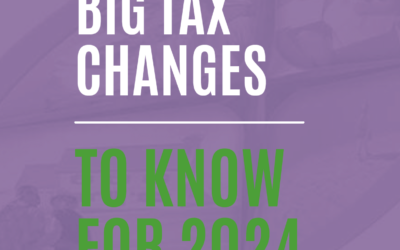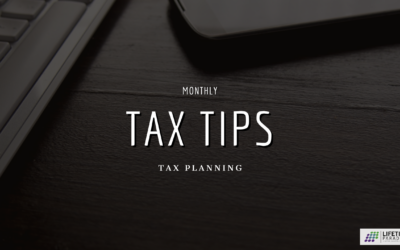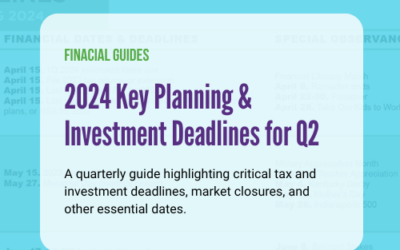Financial Independence
A Better Perspective
Podcast
Episode 3
EPISODE 3 – What Happens If You Can’t Pay Your Rent or Mortgage?
Presented by Lance Edwards and Randy Luebke
In this episode of “Financial Independence – A Better Perspective”, Lance and Randy address the related issues of tenants who are unable to pay their rent and building owners who, as a result, may be unable to pay their mortgages due to the financial constraints of lost income during the pandemic.
What you’ll learn in this episode:
- Lance and Randy address the complementary issues of tenants who are unable to pay their rent and building owners unable to pay their mortgages due to the financial constraints during the pandemic.
- Randy starts with renters who lost their jobs and are like the 50% of the people in the U.S who have no savings. His advice is to not hide under a rock. Don’t wait until the 15th of the month when all of a sudden, you’re late and you would incur a penalty for that reason. Realize that your landlord is probably depending on your money as well. Be proactive.
- Lance and Randy discuss the sobering statistic that about 30% of the rents were not paid nationally on April 1. Lance clarifies an informal survey from April 1 to April 5 showed that only 69% of the landlords surveyed had collected their rent.
- Lance’s initial advice for apartment owners struggling to pay their mortgage: get in contact with your lender and let him or her know your situation. Communicate. He says, “Don’t stick your head under a rock thinking the white horse is gonna come riding in here and all of a sudden everything’s gonna be great again.”
- Lance acknowledges the psychological component of the inability to pay rents and mortgage payments. People feel embarrassed or guilty, like something’s wrong with them. But they need to realize this is not their fault, and that the whole world is in the same boat. You’re not the only one having this conversation with your lender and landlord. But you’ve got to communicate or things could go the wrong way.
- Randy echoes: “Don’t wait. Communicate.” This is a chain that reverberates throughout the economy – like cards stacked up on the table or dominoes. Lance says that in a lot of municipalities, there’s an eviction freeze for 90 days. So even if some people can pay the rent, they may choose not to – which leads to mortgages and ultimately investors not being paid.
- For those struggling but who still have some cash on hand, Randy suggests the Golden Rule. Pay something. If your landlord agrees to allow you to not pay rent now, it’s not like you don’t owe it. They’re not forgiving it. The money will have to be paid in the future. Lance adds that even if you got a deferral for 90 days, on day 91, your lender will be expecting you to pay the last 90 days plus the current month’s due. You’ll have to come up with four months of mortgage payments. Some lenders will allow you to forestall payments for 90 days – at which time you can modify your loan or recast it, recapping the payments at the end or spready it out towards the end. He’s not sure what impact that would have on someone who wants to re-fi that loan.
- Randy re-emphasizes contacting your landlord and coming up with a strategy for payment. He also stresses a phrase he and Lance discussed on an earlier podcast: Cash is King. Because not only do you not know when you’re going to return to work, but it’s possible that you might not make the same amount of money. This would especially be true in food service and the restaurant business. Working out a minimum payment with your landlord will allow you to keep as much cash in your pocket as possible. He advises that once you get back to work, continue to budget and keep your expenses low while starting to build up your cash reserves again. This is especially important due to talk of a second wave of COVID-19 happening during the fall flu season.
- Lance proposes the question to Randy: “If you have a loan modification, you’ve put it off for 90 days and the lender has agreed on it. What does that mean to your ability to refinance? Does it impact your credit score? Randy says that landlords are going to negotiate the terms of whatever income they’re going to get in rent from their tenants. But they’re stuck in the middle, having an obligation to pay the mortgage lender. And the mortgage lender is in turn obligated to pay the bondholders. The Congressional CARES ACT says that if you can’t make your mortgage payment, you should be able to get a forbearance.
- Randy then clarifies the meaning of “forbearance.” It is not forgiveness. It just means it’s going to be delayed for a period of time. You’re still going to owe the interest on that mortgage. If there’s principal involved with the payment, that will be due as well. The law says that it’s an emergency and it should not affect your credit. But there’s a problem. The biggest lenders are Fannie Mae and Freddie Mac, quasi-governmental agencies. Since 2008, the biggest shareholder in these agencies has been the federal government. “In their infinite wisdom,” he says, “they said if you default your mortgage payment, you are not eligible to refinance.” He adds that you may not be eligible to secure future financing or buy any other properties with Fannie/Freddie loans until you get back to being whole and the forbearance is on. Hardly a free ride. Even when you catch up on back payments, you have to wait a year to re-fi or get a new Fannie loan.
- On institutional loans, they’re not required to accept a partial payment and they won’t likely accept a partial payment. So if you’re short, it’s like you never made any payment that month – and that will potentially impact your credit. Unless you got a formal forbearance then it’s going to show up as a late payment on your credit.
- Randy says what’s going on right now is literally wet clay, an evolving situation. The info he has on forbearance came up just yesterday (a day before the podcast). He admits that next week, there could be an unforeseen update, for better or worse.
- Lance discusses private loans, including those where the seller is carrying back the payment. That gives everyone more latitude – first and foremost, because it’s not being reported to a credit agency. The default remedies are the same if you don’t catch up. For those with a shortfall, he suggests negotiating with lenders. He’s also been sharing with his client base and subscribers the idea that you can borrow money from a private investor. You can pay them back in the future and use the money now to cover your mortgage payments. If you have equity, you can give some of that up. He says, “You shouldn’t be operating the building without cash reserves to begin with. But this can help weather the storm if that’s the case.”
- Randy concurs, referring once again to their credo “Cash is King.” His rule of thumb is that you should have three months rent for every door you have. So if you have six doors, you should have 18 months of sitting in a bank account. He says, “If I’m the landlord, I’m not going to reach out to my tenants proactively to talk with them about how they can pay their rent or not. But I’m also not going to let the rent be late. If the rent is due on the first, then on the second I’ll call the tenant to discuss what to do.”
- Lance discusses a recent situation with a small property he recently purchased. It was 100% occupied and was preparing to close before April 1. The seller informed him that this one lady tenant lost her Section 8 government assistance. Another had lost her job and was trying to get unemployment. The Section 8 office had a new policy, though. They would not be cutting anybody off in April and May. They would keep paying her even though her term ended. The other tenant began to receive unemployment. “I think most people want to do the right thing,” Lance says. “They want to pay the rent or mortgage.”
- Randy started in the mortgage business in the late 80s. Back then, the predominant lenders were savings and loans and community banks. Now, the community banks are gone and the savings and loans are as well. The ability for people to negotiate terms of their loans is gone as well. Over the last 15-20 years the mortgage business goes like this: “A mortgage is booked. It’s sold on the secondary market. Once it’s sold, all the rules of compliance are built into that document. The bondholders expect everybody to abide by those rules and no individual negotiation is allowed.” During 2008, people in Randy’s business discovered that credit default would swap with the insurance. Even with PMI, the lender would be made whole if the loan defaulted.
- Lance has been getting numerous promotional offers for credit cards with zero percent APR. Balance transfers. Take cash out of your credit card. He poses the question, for renters and landlords short on cash, would it be a good idea to tap into the zero percent APR offer on their credit cards to keep making rent and payments? Randy says the fee would actually be about 5%. Balance transfers are expensive. You’re still taking on debt. Zero percent interest is attractive, but on the other side of that, if you don’t have a plan to get out, what may be waiting for you is a 25% interest rate, plus all the interest you didn’t pay for the six months at 25% on the credit card. He says you can do it, “but keep your eyes wide open. Know you better have a plan to make this thing work at the other end and get out of it.” Randy and Lance agree that these companies are counting on you being one day late so they can nail you with penalties.
- With private money lending, you basically control it and can do anything you want. You can offer forbearance, add a chunk of money to the end of the loan or renegotiate the notes as needed. The beauty of this system is that kind of flexibility.
- Be aware of the consequences of “kicking the can down the road.” You need a plan as to what you’re going to do at the end of that time period, whether it’s 90 days or longer. Everybody’s in the same boat. Different sources to go raise that fund. Follow the Golden Rule. Randy’s three- part summary: “Be fair. Have a plan to make things work out at the end. Don’t wait. Communicate.”
- Randy offers The Financial Independence Tool Kit on his website www.LifetimeParadigm.com. The tools include information addressing topics like how to take care of aging parents, how to fund your kid’s college and how to deal with Social Security and Medicare. There are 12 different financial guides in all – and all are free! Randy also offers recordings from his famous work Budgeting for Dummies. It explains how to create a budget that’s easy to stick with. There is also a segment, with a video and spreadsheets about how to get out of debt.
- Lance has a free giveaway as well. It’s a program called PlayBigger.info. “I think it’s so important. Keeping your mental game straight. Not letting that fear wrap you up. That’s true in all parts of our lives,” he says. He also points listeners to show notes from these podcasts at FIBetter.com.

Big Tax Changes to Know for 2024
Financial Guides2024 has brought some big tax changes with it. It’s essential to stay informed about these...
The Smart Tax Planning Newsletter March 2024
Tax PlanningIn This Issue: IRAs for Young Adults Get Up to $32,220 in Sick and Family Leave Tax Credits New Crypto Tax...
2024 Key Planning & Investment Deadlines for Q2
Financial GuidesSpring is coming and to keep you financially organized for Q2, we are providing you with our Spring...






